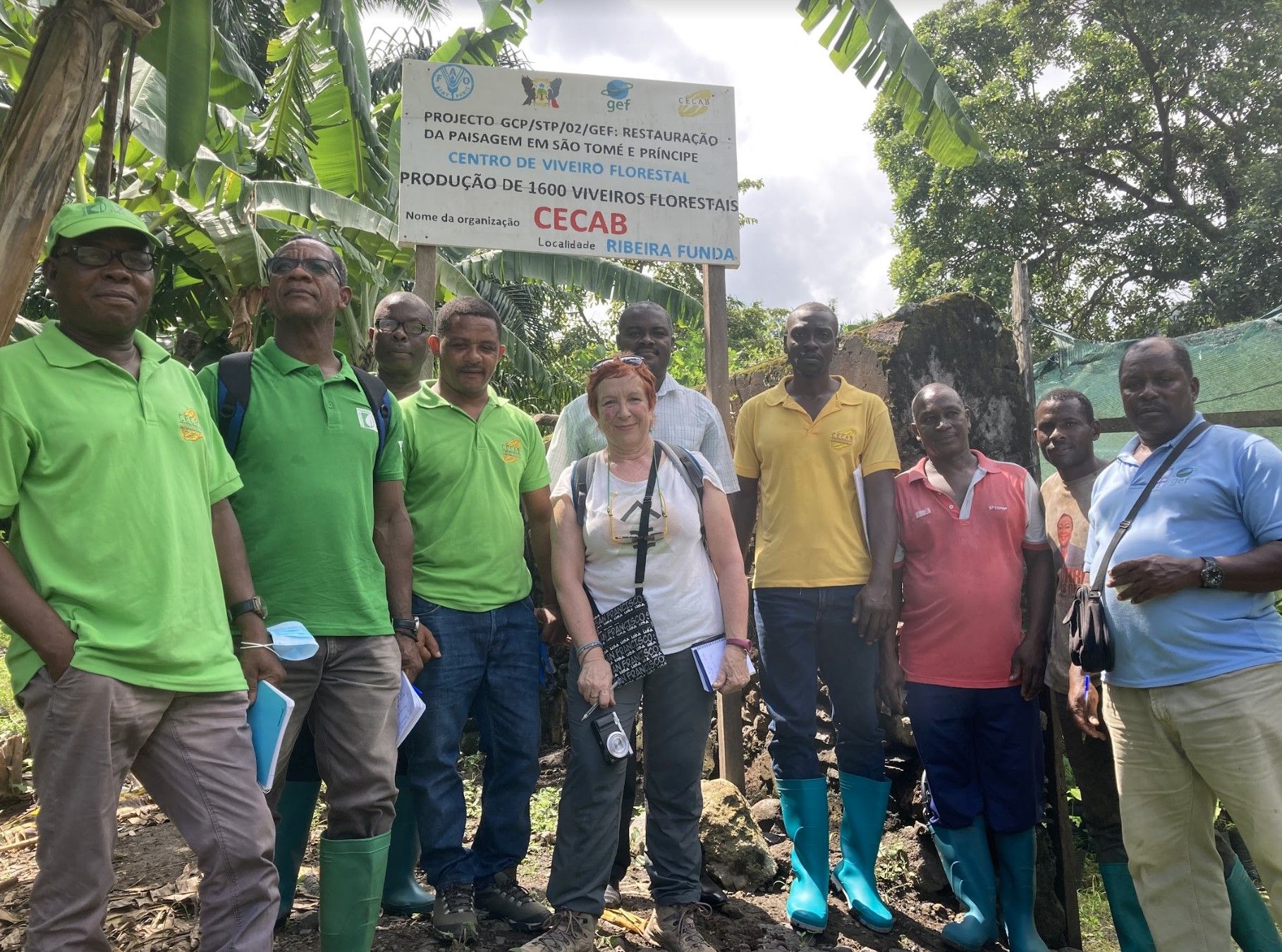The Restoration Initiative: A Sao Tome and Principe story
Linking forest conservation to profitable projects in Sao Tome and Principe
The TRI Sao Tome and Principe project is supporting entrepreneurs as they build sustainable businesses and create new value chains.
The forest ecosystems found on the tiny island state of STP are among the most ecologically rich and diverse in Africa. Located close to the equator in the Gulf of Guinea, the island is a treasure trove of trees, bushes and herbs, with some 10 per cent of the country’s plants found nowhere else in the world.
Traditionally, local inhabitants rely on the country’s rainforests for food, medicine and many other uses in their daily lives. Yet despite this familiarity, locals have only recently begun exploring forest-based businesses that utilize these foods, substances and other NTFPs. Commercial use of the forests of STP has historically been focused primarily on logging and timber extraction. Logging, however, has become unsustainable and trees do not have the chance to regenerate in a way that ensures the forest’s overall health.
With forests under threat, the TRI STP project is supporting the creation of sustainable and profitable businesses to help diversify income away from unsustainable timber harvesting. These businesses utilize high-quality forest products, which include locally known delicacies, such as herbs, mushrooms and snails, to more well-known commodities such as honey, wild pepper, vanilla, ginger and other products that can be grown sustainably under the forest canopy. The vision for these business opportunities is to not only provide added incentives to protect forest resources but also to improve the well-being and material prosperity of forest user communities in STP.
Boosting sustainable businesses
The TRI STP project and its partners developed a unique funding scheme to help small- and mid-size bankable projects address the many structural barriers that limit the success and profitability of new forest-based businesses. These barriers include the private sector’s weak involvement, lack of capital from banks because of their unfamiliarity with these types of ventures, as well as logistical problems faced by small enterprises, communities and cooperatives. Businesses interested in sustainable management, forest restoration or agroforestry, struggle to secure loans, microcredits and other fiscal incentives.
To find proposals and participants, the TRI STP project and partners put out a public call in 2021, which was advertised on the radio and in bulletins. Within six months, the TRI STP project team collected and screened 39 applications, homing in on seven promising ones. Upon selection, each beneficiary went through a short e-learning and coaching process led by specialists to strengthen the proposal’s overall profitability. This involved a joint review of each initiative’s financial and business sustainability, and, if necessary, amendments. In addition to the consultation and the provision of contracts, the project opened new bank accounts for the beneficiaries, where they, in turn, deposited a matching contribution of at least 10 per cent of the total capital provided by the TRI STP project. Overall, the scheme has invested USD 87000, allocating between USD 5000 and USD 15000 per sustainable venture.
The spectrum of initiatives
All the funded initiatives are still in the early stages and are led by entrepreneurs, small businesses and NGOs. The Directorate of Forests and Biodiversity, the TRI STP project’s main national counterpart, is monitoring each initiative. The initiatives fall across a spectrum with varying degrees of novelty:
- One entrepreneur will look at the processing of essential oils for aromatherapy and for hydrolates, a by-product of the essential oil-making process. Hydrolates can be added to cosmetics and personal hygiene products, or even included in food products.
- Another initiative is looking at the production of fuel-efficient stoves for cooking to reduce the use of firewood while improving health and hygiene conditions. These stoves are to be distributed free of charge to rural households while creating national knowhow on building these valuable devices.
- A further initiative aims to boost local employment for women, specifically via the set-up of agrotourism and ecotourism facilities, such as small-scale ecolodges and botanic gardens.
- Coco Express, a project by 35-year-old Abdulay de Sousa Pereira Rosa, will supply fresh coconut water to the national market. He will then use the by-products of coconut processing to produce compost and organic bags for growing seedlings in tree nurseries.
The TRI STP project is hopeful that these funded initiatives will not only lay a path for other local entrepreneurs to follow, but further link the local economy to sustainable forest management while meeting the growing demand for top-tier forest products. If the economic activities launched through this scheme thrive and attract the attention of business investors, the TRI STP project’s investments will help boost a responsible economy founded on forest restoration, conservation and sustainable management on these remarkable islands.
The TRI STP project’s investments will help boost a responsible economy founded on forest restoration, conservation and sustainable management on these remarkable islands.
This story is from TRI Year in Review 2021


